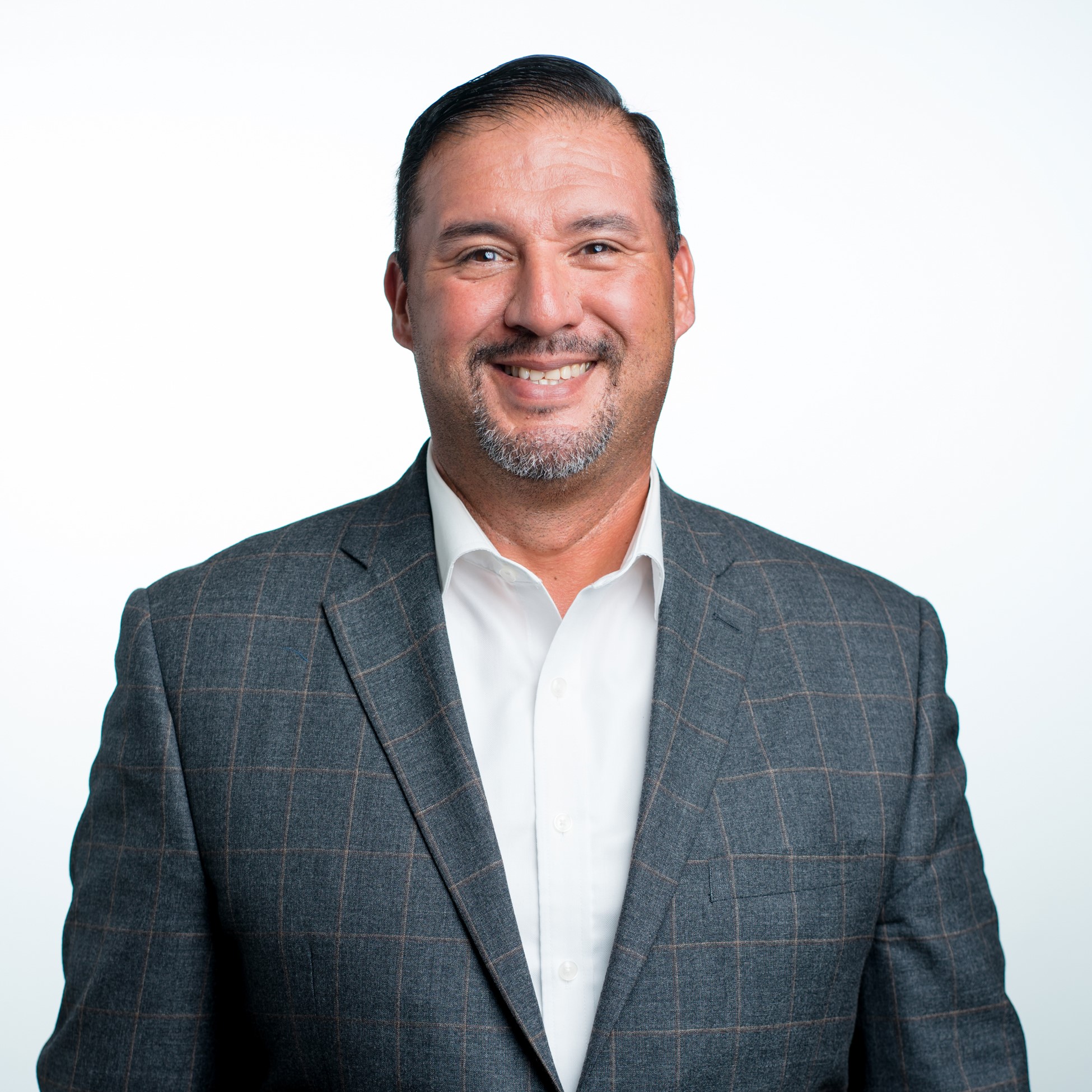Not an Uphill Battle
“It's not the uphill battle that I think some people might want to make it out to be,” he said. “I get to travel a lot to BOMA locals across the nation. The property management side of the business is diverse and moving in a great direction. My hope is that we will soon see the same advancements in other aspects of the business.”

DEI Committee member Manuel “Manny” Moreno is the first Latino to serve in an executive leadership role in the history of BOMA International, which was founded in 1907. He currently is BOMA’s vice chair and third in line for the association’s top leadership post. Randal L. Froebelius is the association’s current chair, and Robert M. Six is its chair-elect.
“It’s a humbling experience, one I do not take lightly and one that offers so much opportunity for the future,” Moreno says. “I hope that my experience is an example to other Latinos, people of color, and other minority groups that an executive leadership role is achievable.”
Moreno, president of PJMB Commercial Inc., in Pleasonton, Calif., said he tries to be “a resource and guiding force” to assist those in the commercial real estate profession who are following a similar path.
Diversity does not just pertain to issues related to race, ethnicity and gender. It also addresses challenges facing employees based on age, veteran status, religion, sexual orientation, marital status, national origin, gender identity, socioeconomic status, language, religious commitment or political perspective. DEI also addresses physical, cognitive, and social-emotional abilities.”
DEI Efforts Began in the 1960s
The U.S. began to address diversity, equity and inclusion in the mid-1960s, with roots dating back to the civil rights movement in the 1950s.
“Unfortunately, bias (whether unconscious or deliberate), although not as prevalent today, was always a factor that excluded talented people,” Robinson said.
Today, DEI proponents in commercial real estate are pushing harder to expand such initiatives in response to various factors, she said. They include the increasing presence in workplaces of a younger generation of workers, many of whom view DEI as a “must-have” in organizations where they work. In addition, Robinson said, corporations increasingly are acknowledging that DEI programs and policies can have a positive impact on their bottom lines.
BOMA International launched its DE&I committee in August 2020. Since then, 75 percent of the association’s 85 local chapters have launched DE&I committees.
Commercial real estate firms nationwide also stepped up their efforts, committing to DEI platforms and departments, and setting diversity and inclusion performance goals.
During 2020 and 2021, for example, Cushman & Wakefield appointed its first chief DEI officer. CBRE filled a first-ever chief responsibility officer position. Meanwhile, Tishman Speyer hired its first head of diversity, while JLL invested $4 million to fund entry-level compensation for racially diverse and female sales professionals.
Call to Expand DEI in boardrooms
Also causing more focus on DEI efforts is attention from the Securities and Exchange Commission’s (SEC) pending
ESG-related proposals and more anticipated in 2023.
A recent PwC report noted that regulatory bodies globally are increasing the call for companies to disclose information, including board diversity representation and DEI program objectives. “In some cases, companies must explain in their disclosures why they haven’t met certain regulatory targets related to diversity measures,” the report stated. “In 2023, we expect to see proposed updates to the SEC’s human capital disclosure rules.”
Environmental, social and governance (ESG) factors are expected to be a priority in commercial real estate in 2023, as investors, stakeholders, and employees step up their call for changes tied to issues including climate challenges to diversity policies and disclosures.
DEI also is top of mind for consumers. According to a
PwC Survey, 48% of consumers said companies need to do more to advance societal imbalances tied to DEI, hiring practices and fair pay.
Data Suggest Gray Areas
In the real estate industry, evidence points to firms doing more, not less, according to the
Global Real Estate DEI Survey 2022.
In North America, 56.1% of respondents said they have a formal DEI program—up from 49% in 2021. The overall data show a shift, although a small one, toward more women employed full-time and greater representation from a wider racial/ethnicity cohort.
However, North American commercial real estate firms are behind Europe in analyzing pay gaps based on gender, the survey noted. And men in North America receive carried interest and equity or equity-like currencies at a rate at least three times higher than women.
In addition, white males comprise 39.1% of the average workforce at the participating CRE firms—still by far the largest single group—but down from 44% in 2021. They also still hold the largest proportion of boardroom seats and senior management positions.
Four in every 10 CRE firms in North America surveyed say their company faces barriers to achieving DEI success, including it not being a high priority internally, or seeing little to no connection between DEI and business objectives. Only 29% of firms reported a dedicated budget for DEI.
Bisnow's DEI Data Series recently examined racial and gender inequality at the highest ranks of the industry and found “limited progress” was made on diversity in 2022.
Keep Pushing Forward
“Although some of the momentum has slowed, it’s still better than what has taken place historically,” Moreno says. “Still, there needs to be more women and people of color in C-suite positions, on boards, and in decision-making positions. While the momentum might be slowing in the industry, in general, it’s our responsibility to keep pushing it forward and making meaningful, long-lasting changes.”

“I'm an out and proud gay man,” he says. “It isn’t unusual that, in a conversation, I walk into many boardrooms, and people say, ‘Hey, look, it's another white guy.’ But then their second or third question is, ‘How does your wife feel about your extensive travel?’ That has become a much more comfortable conversation over the years, but I haven’t changed,” Dukes said.
“I’ve always been earnest and frank. I don’t have a wife. I'm not just another white guy. This is who I am, and the companies that I've served have recognized no difference whatsoever, and my trek has been great,” he said. “I have always thought of DEI as the process that means my merit is based on performance and strength of character and not who I go home to.”
Dukes, however, does not downplay the importance of DEI initiatives.
“The associates who are taking care of every aspect of commercial real estate—whether it's property management, leasing, development or investments—should be very representative of the communities that we serve,” he said.
“We think better strategically if the representatives on our team have diverse backgrounds. If we have folks from different generations, geographic backgrounds, racial backgrounds, educational experience, and years of experience in the business, we're going to be much broader and inclusive in our approach,” he said. “And, personally, it's just more fun.”
Spreading the Word About CRE Career Options
Robinson, the DEI Committee chair, shared another view. “The biggest obstacle has been making minorities aware of opportunities within the CRE industry.”
Commercial real estate hasn’t educated young people in high school or college to recognize the industry as a successful career that could lead to senior leadership roles, she says. The industry needs to do a better job communicating what commercial real estate is and what it does.
“Strides are being made to correct this,” she says. “Educational outreach is being extended into high schools and colleges serving marginalized communities, including Historically Black Colleges and Universities (HBCUs), which are reporting that this is having a huge impact as young African Americans plan their careers.”
This outreach is being supported with mentoring, internships and apprenticeships. In addition, BOMA International’s DE&I Committee is creating forums and hosting meetings on educational outreach and other important DEI topics, Robinson says. BOMA’s local associations are collaborating with secondary education programs through workshops, bootcamps, and webinars hosted by real estate managers, leasing agents and building engineers.
Importance of Training Programs
In addition, CBRE is partnering with social impact platform Project Destined on a
program designed to help students from HBCUs get real-world experience in the industry. At least 100 students from select HBCUs will receive scholarships annually to participate in the program.
Meanwhile, JLL joined forces with HBCU’s Business Deans Roundtable to expand its impact through the launch of the
JLL Ambitions Fellowship Program. The program partners with school deans and administrators to select students to participate to increase awareness of career opportunities at JLL.
Robinson noted that her employer in Denver, LBA Realty, established a national summer internship for exceptional college minority students studying real estate and finance to provide real-world experience in acquisitions, dispositions, leasing and management operations. LBA also hired one of the participants in a property management position in its office.
Additionally, efforts such as Project REAP, an online academy to advance DEI in the real estate industry, are making a difference, she noted.
Project REAP helps connect talented professionals of color to careers in real estate by highlighting a talent pool that has always existed but was previously unacknowledged, Robinson says. Today, more than 1,700 REAP graduates work for leading industry firms.
“There’s meaningful and sustainable change occurring, especially as you look at the younger generation in the workforce,” Moreno says. “It’s so important for them to focus on ESG and DEI issues. They want to be a generation that really makes change, really has an impact, both socially and environmentally.”
ABOUT THE AUTHOR
Liz Wolf is a Minnesota-based freelance reporter who frequently writes about commercial real estate. She previously was an editor at the Minnesota Real Estate Journal.